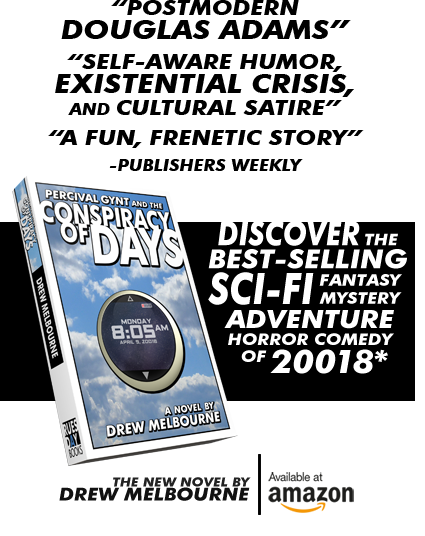Batman, LEGO BATMAN, and a Child's Justice
Finally had the chance to sit down and watch the Lego Batman movie this past weekend, and now I have bat-thoughts (nana-nana-nana-nana BAT-THOUGHTS!) that I need to share. This will be a little bit of a review, but mostly Drew pontificating on the nature of Batman. (An event more commonly known as "Tuesday.")
As a side note: I once sat down to play a Batman video game without realizing (until it was later pointed out to me) that it was Batman Day and that I was wearing a Batman T-shirt. I am just that Batmany.
Since the movie came out way back in February, I'm not going to be precious about spoilers. So if you REALLY don't want to know who Batman is beneath the mask, turn back now!
Still with me?
Okay, so let's get the review part out of the way first: I liked it. Lego Batman was a funny, well-executed movie that capitalized on the unique take on the Dark Knight first presented in the surprise hit Lego Movie from a few years back. But the movie got a 91% Fresh on Rotten Tomatoes and an A- audience score from CinemaScore, so you probably didn't need me to tell you that.
But before we get any further into Lego Batman, let's talk a little bit more about who Batman is. Batman is famously a character who is at once singularly iconic and also very mutable. Compare the poppy 60s TV show with the brooding Tim Burton film or Frank Miller's noirish Year One comics to this century's gee-whiz fun Brave and the Bold cartoon. Or any of them to whatever's happening in any given episode of Gotham. And that's before we start talking about things like DC's line of Elseworlds comics where Batman is sometimes a pirate or a space alien or a dentist. (May have made up one of those.)
The point being that you can stretch the definition of who and what Batman is quite a bit and still create something that is at minimum commercially successful and of the zeitgeist, if not an outright classic in its own right.
But what is that definition that you're stretching? Who, in the fewest possible words, is Batman?
For me, it comes down to this:
"Batman is a child's idea of justice." Only a little kid is going to think that the most appropriate way to avenge your parents' death at the hands of a back alley mugger is to devote your life to ending all crime by training obsessively, dressing up in a crazy costume, accumulating an ever-expanding range of gadgets and trophies, and sneaking out at night to beat up bad guys and generally terrify them the way you were once terrified.
That's one of the reasons that Robin is so important to the mythos. Because Robin exists as Batman's silent acknowledgement that he got it wrong. Even when he won't admit it, which is most of the time, Batman knows that being dark and brooding and vengency isn't much of a way to honor his parents. But by the time he gets to that point of realization, he's too far in. Robin is the corrective. If he can give Robin the childhood that he was denied and, more importantly, shape him into the kind of optimistic, inspirational hero that his parents would be proud of, then it makes Batman's own decent into dark justicy justice somehow worth it.
Which is why it's hilarious that in the comics there have been so many Robins and so many of them have turned out so screwed up. It's not so much that Batman always needs a Robin (as the comics have suggested from time to time) as it is that Batman needs to keep training Robins until he gets it right.
Richard Grayson comes close, but eventually becomes angsty too-cool-for-school Nightwing. Jason Todd dies and comes back as a psychopath. Tim Drake keeps insisting he's going to retire one day but winds up as a gun-totting vigilante Batman in one recently explored future timeline. And Batman's own son Damian is, like, basically the Anti-Christ.
The popular theory is that if not for the murder of Martha and Thomas Wayne, Bruce Wayne would have grown up to be what Batman always pretends to be: a foppish playboy. But we know that Bruce's parents were wonderful human beings who taught him all of these important life lessons and were the moral pillars of Gotham City. How could having more Martha and Thomas in his life have led to a worse Bruce?
I think it's instructional to think about who Bruce was in the moments before his parents were killed: the son of rich philanthropists fighting to preserve a city against an encroaching wave of crime and misery, the little boy who thrilled to the cinematic adventures of Zorro.
My argument is that Bruce Wayne would have become a masked superhero regardless of what happened in Crime Alley. He just would have been more dashing. More joyous. A little more like Zorro or Errol Flynn.
Or Robin.
Crime Alley didn't make Bruce a hero, it just made him into a different, darker hero.
And when you see depictions of Batman that are lighter, be it the 60s show or Brave and the Bold or some of the comics aimed at younger kids, what you're getting is the Batman who's been able to course correct back closer to the hero that he dreamed of being before Crime Alley.
Either way, it's still a child's view of what being a hero means. And of the two, the theoretically better, corrected version is actually the more child-like. Batman doesn't grow up, he just becomes a better or worse projection of his childhood hopes and fears.
And that's what I find fascinating about Lego Movie and Lego Batman's version of Batman. Because here we get the Batman who isn't simply the child's idea of justice. He's very blatantly the angsty teen's idea of justice, writing rocks songs to his dead parents, obsessed with darkness and his own perceived cool, frequently more sulking than brooding. You can easily imagine that this Batman lost his parents when he was in 8th grade and was never able to grow up beyond that point. Which is why it's fitting that Lego Batman is a coming of age story, normally the story of a teenager becoming a man but here the tale of a manchild catapulted into fatherhood.
Of course, what would REALLY growing up look like for Lego Batman? His immaturity is really his whole appeal, so it's probably fitting that we never find out.
What would growing up look like for comics Batman? I'm not sure anything short of giving up being Batman and turning his full attention to charitable works or maybe politics would really convince me. (Let's get some serious, progressive mental health care legislation passed in Gotham City!)
A current comics storyline, in which Batman recently asked Catwoman to marry him, suggest another path...
One more point on Lego Batman and this idea of maturity:
I think it's interesting, if not particularly surprising, that it's Lego Robin who essentially forces himself on Lego Batman. It's Lego Robin who sees all the similarities between his life and Bruce Wayne's. Whereas comics Batman can have that moment of self-awareness to look at Robin and see an opportunity to make up for past mistakes, for Lego Batman that awareness must always be forced upon him.
Some miscellaneous notes:
- Lego Batman does some great, fairly subtle racebending. The Gordons are both voiced and color-coded as Hispanic, and Billy Dee Williams finally gets to play a black Two-Face. When you think about it, it's pretty weird how white Gotham remains after all of these years.
- Ralph Fiennes voiced Alfred in this movie, and yet somehow Voldemort appears in this movie voiced by someone else. Amazing.
- All of the "Phantom Zone" villains that appear in this movie are great. Yay, Daleks! But my favorite bit was having the Gremlins from Gremelins taking apart the Batplane brick by brick. Because that's two or three great jokes in one.
- I will forgive a lot of the alternate continuity that appears in TV and film adaptations but any universe in which Barbara Gordon might some day become Dick Grayson's mom is sick and wrong.


